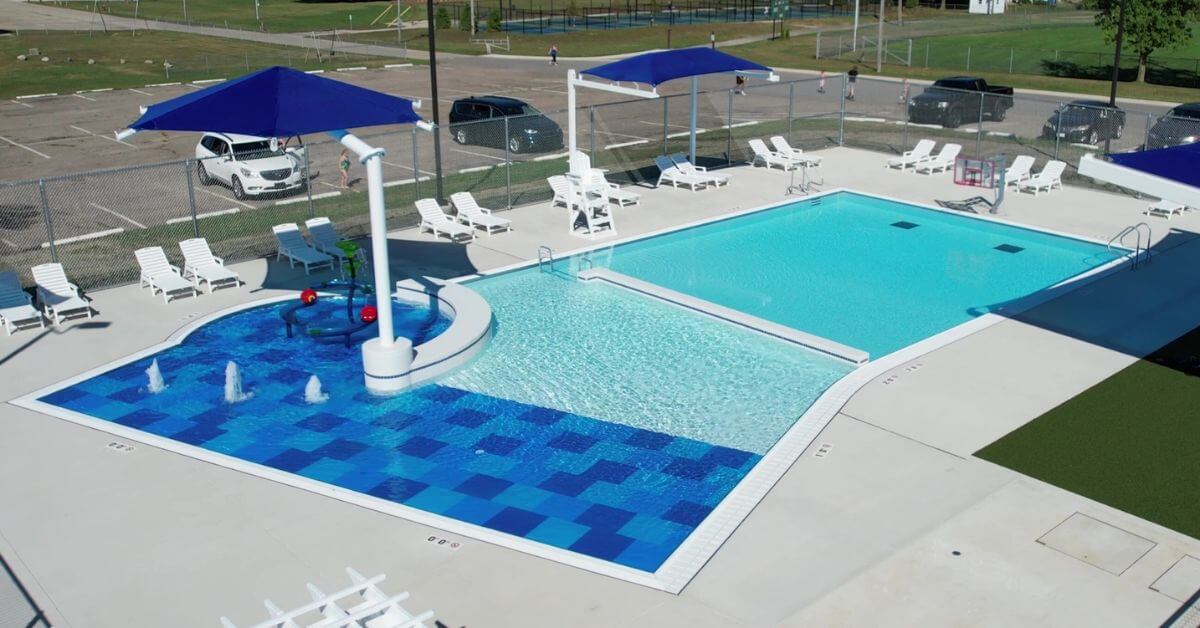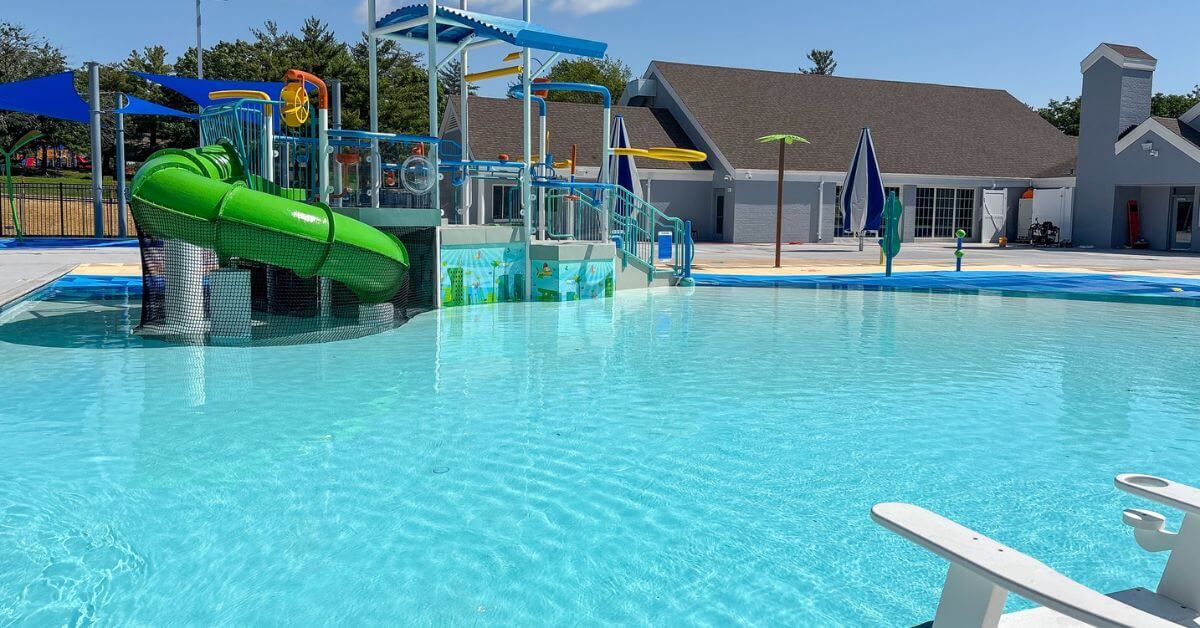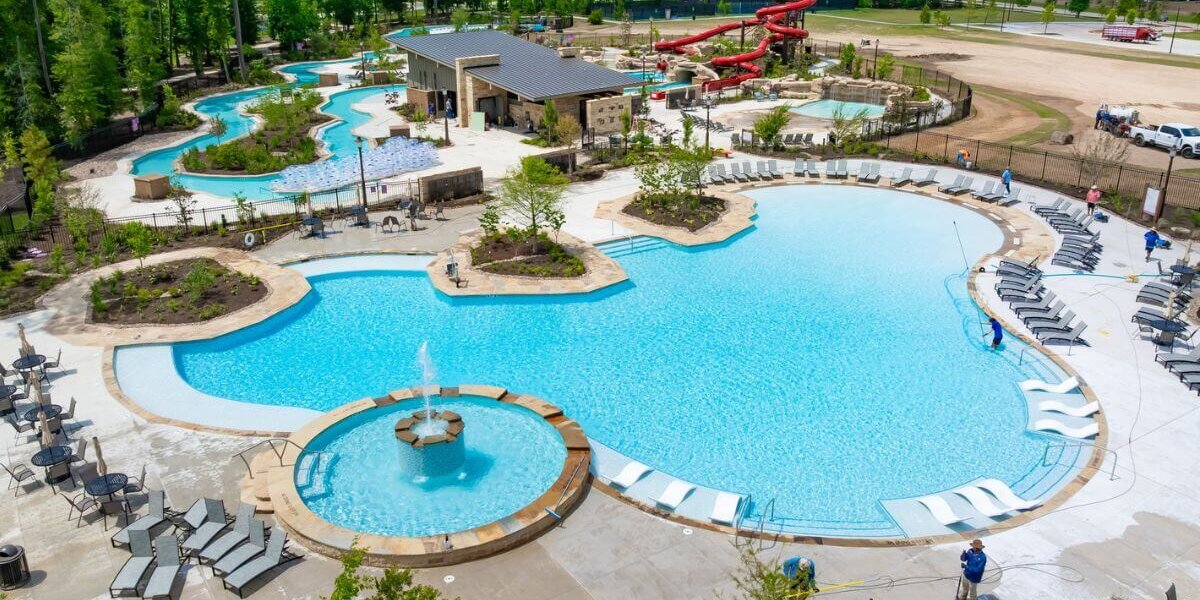Swimming pools are a symbol of relaxation, recreation, and luxury, serving a variety of purposes for individuals, families, and businesses. Building or maintaining a swimming pool, whether for residential or commercial use, involves several critical considerations that can greatly impact the results.
Residential pools must meet the specific needs of homeowners, providing a private oasis for leisure, exercise, or social gatherings. Commercial pools prioritize accommodating larger groups, adhering to strict regulations, and providing a safe, functional experience in public spaces, such as hotels, fitness centers, and community recreation facilities.
Each type of pool presents distinct challenges and opportunities, from design and size to maintenance and functionality. Learning about the differences between residential and commercial swimming pools will help you make informed decisions to achieve a successful and enjoyable pool environment.
Purpose and Usage
Residential swimming pools are primarily for private homeowners and their families. These pools typically serve leisure-based purposes, including relaxation, exercise, and small-scale social gatherings. Their usage is occasional and usually lacks extensive demand, with a less busy maintenance schedule.
Commercial swimming pools can withstand heavy usage and larger crowds more effectively. They are common in hotels, resorts, fitness centers, and public recreational facilities. Their purpose includes hosting events, serving clients, and offering year-round services.
Size and Dimensions
Residential swimming pools typically range in size from small plunge pools, measuring around 10 to 20 feet in length and 6 to 10 feet in width, to more traditional backyard pools, often spanning between 25 and 40 feet in length and 10 to 20 feet in width. These dimensions are customizable to suit individual preferences, available space, and intended usage, such as relaxation or lap swimming.
Commercial swimming pools are larger, designed to accommodate higher user capacity and diverse activities. These pools are 50 to 100 feet or more, with widths often exceeding 25 feet and depths varying to accommodate different needs, including recreational swimming, competitive events, or aquatic fitness.

Design and Aesthetic Preferences
Residential pool designs may often emphasize creating an oasis-like environment that complements the homeowner’s lifestyle and aesthetic preferences. These designs can incorporate luxurious elements such as infinity edges, natural stone finishes, integrated waterfalls, and lush landscaping to mimic resort-style retreats. Custom lighting, mosaic tile work, and unique shapes also allow homeowners to personalize their pools and make them a standout feature of their property.
Commercial pool designs prioritize functionality and accessibility while maintaining an appealing visual appearance. Sleek and minimalistic finishes, durable materials, and clear lane markings are common, ensuring a professional yet inviting ambiance. Many commercial pools also include color schemes and deck designs that align with branding or community themes, blending practicality with subtle aesthetic enhancements.
Safety Standards and Compliance
Residential pools are subject to local building codes and safety laws, which often mandate measures such as secure fencing, pool covers, and alarm systems to safeguard families and limit unauthorized access. These regulations, although important, are generally less complex than those for commercial facilities.
Commercial pools face much stricter safety and compliance standards due to their public nature and the higher volume of users. They must adhere to health and sanitation codes for water quality, provide certified lifeguards to ensure immediate response, and comply with ADA guidelines to guarantee accessibility for individuals with disabilities. These regulations aim to prioritize public health and safety in environments frequented by diverse individuals.
Materials and Construction
The selection of materials plays a crucial role in determining the quality, durability, and maintenance of residential and commercial pools. These are the most common materials for each:
Residential Pools
- Fiberglass: A popular, cost-effective option that offers a smooth surface, easy maintenance, and quick installation. Fiberglass pools are resistant to algae buildup and have a long lifespan with minimal upkeep.
- Vinyl Liners: Known for their budget-friendliness, vinyl-lined pools offer flexibility in design, featuring various shapes and patterns. However, they may require periodic liner replacements due to wear and tear.
- Concrete: Concrete pools are the best option for custom shapes and deep designs. Their flexibility, strength, and versatility make them a long-term investment for a pleasant experience.
Commercial Pools
- Reinforced Finishes (plaster or tile): Ensure longevity and resilience in high-use settings while maintaining aesthetic appeal. Plaster is durable and economical, whereas tiles can offer a luxurious and hygienic finish.
- Concrete: This is a standard material for commercial pools, offering unmatched strength and customization. It can handle high traffic and extreme conditions over extended periods.
- Stainless Steel Components: Often used for specific features such as gutters, ladders, or fittings, which contribute to durability and compliance with health and safety codes.

Design and Build Services
Both residential and commercial pool designs require expert handling to meet unique challenges and objectives. Professional pool design-build services offer tailored solutions that align with safety, aesthetics, and technical needs for both types of pools. These services ensure efficient coordination in building structures that are desirable and compliant.
The expertise of commercial pool contractors enables them to tackle challenges that may arise during the project, such as addressing complex site conditions, integrating modern systems, or adhering to stringent regulations. Their experience and proficiency are key to delivering high-quality pools that are durable, safe, and meet all operational standards.
Maintenance Demands
Maintenance demands for residential and commercial pools differ significantly due to their size, usage frequency, and purpose. Residential pools, typically used by fewer people in a more relaxed environment, require less frequent maintenance. Homeowners can manage water quality by using simple test kits to check for chlorine, pH, and other chemical levels.
Commercial pools demand rigorous daily maintenance to ensure public health and safety. This includes frequent chemical balancing, thorough cleaning, and continuous filtration to prevent contamination. Reliable commercial pool maintenance services oversee these tasks to ensure compliance with strict regulatory and operational standards.
Costs of Construction and Operation
Residential pools are more affordable to construct, as they are smaller in scale and designed with simplicity in mind to meet the personal preferences of homeowners. Such pools often prioritize only the essential features, with the option to include luxurious upgrades, such as heating systems, lighting, or decorative finishes, if the budget allows.
Commercial swimming pools involve substantial financial investments due to their larger dimensions, advanced filtration and circulation systems, and detailed compliance with strict health and safety regulations. These pools can accommodate a higher volume of users and may feature additional amenities such as locker rooms, seating areas, or competitive swimming elements.
While residential and commercial swimming pools may share some similarity, their purposes, user demographics, and operational demands set them apart, necessitating distinct maintenance and design approaches. Residential pools prioritize comfort and privacy, whereas commercial pools focus on high-traffic usage, safety regulations, design, and personalization.
Treating a commercial pool like a residential one can lead to critical oversights in safety, hygiene, and functionality, potentially putting users at risk and compromising long-term sustainability. Understanding the differences between residential and commercial swimming pools ensures both deliver optimal performance and meet the expectations of their respective users effectively.
























